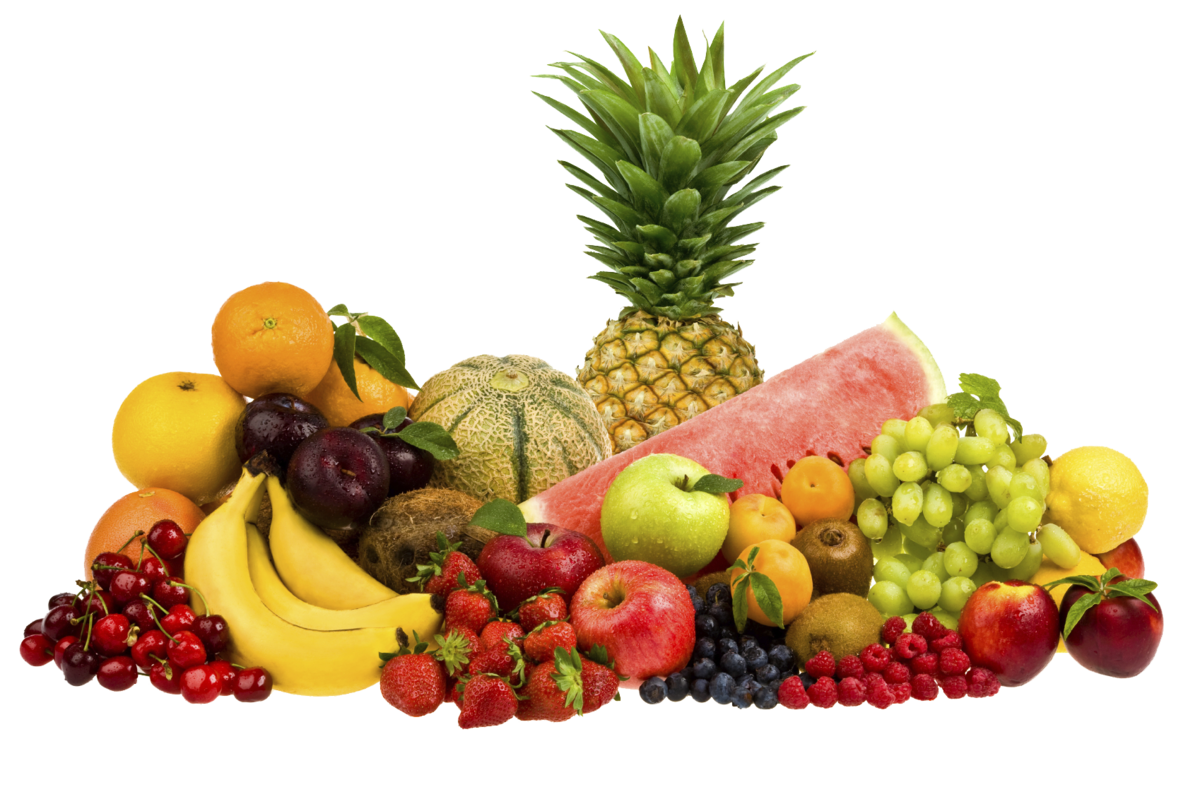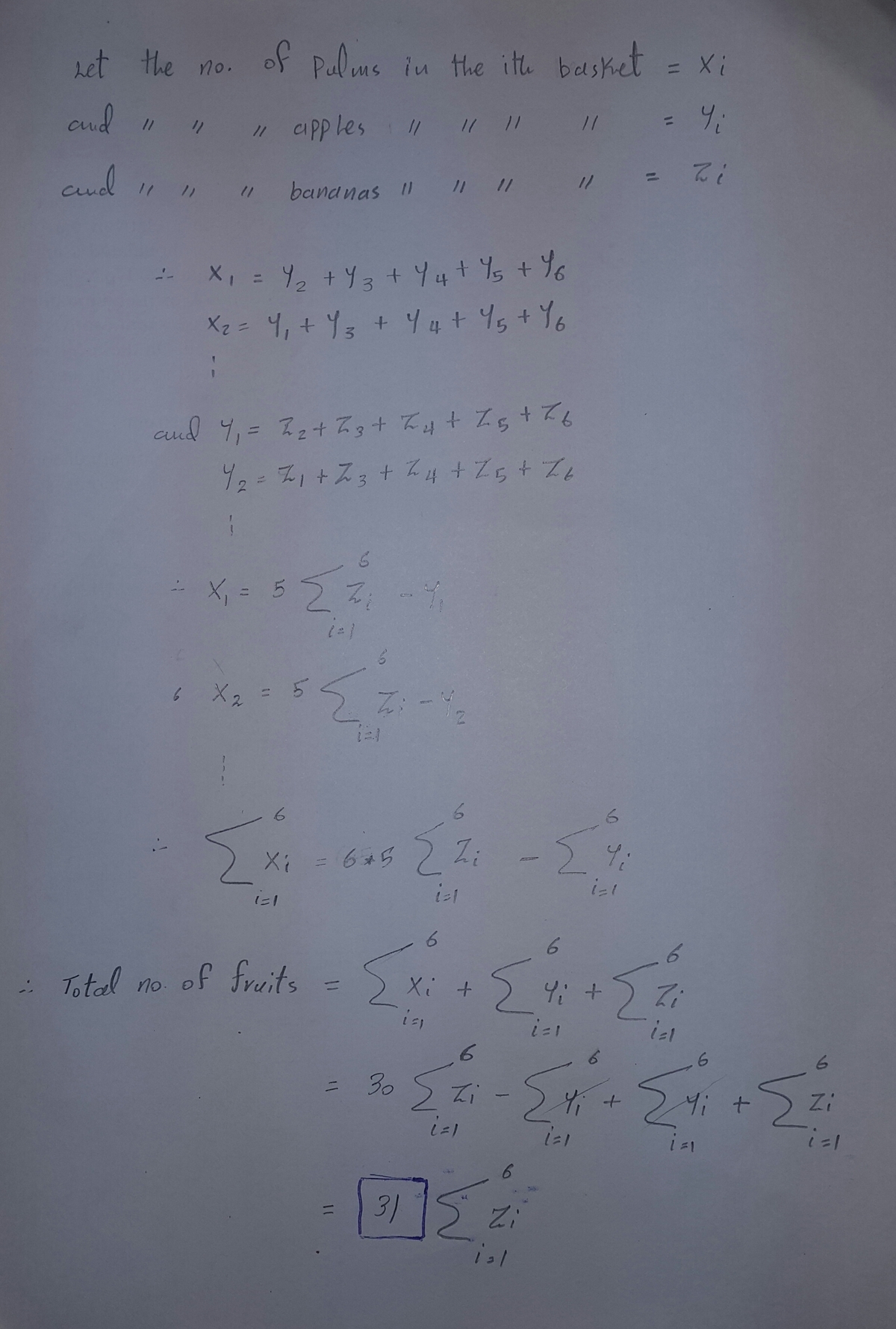What do you call a shoe made from bananas?

I have 6 separate baskets none of which is contained in another. In these baskets you will find plums, apples and bananas. In each basket there are as many plums as apples in all the other baskets combined. Moreover, in each basket, there are again as many apples as bananas in all the other baskets combined.
What is the largest integers that the total number of fruits is always divisible by?
The answer is 31.
This section requires Javascript.
You are seeing this because something didn't load right. We suggest you, (a) try
refreshing the page, (b) enabling javascript if it is disabled on your browser and,
finally, (c)
loading the
non-javascript version of this page
. We're sorry about the hassle.

First, let's consider statement 1 :
In each basket there are as many plums as apples in all the other baskets combined.
This tells us that the number of plums in basket 1 is equal to the number of apples in baskets 2 , 3 , 4 , 5 , 6 combined. Draw a table.
Each basket containing apples appears 5 times. Thus, the total number p of plums is 5 times that of apples, and by the same logic, the total number of apples is 5 times that of bananas.
Therefore, the total number of fruits is n + 5 n + 2 5 n = 3 1 n , if n is the number of bananas. It is always divisible by 3 1 . □
Answer to question "what do you call a shoe made from bananas?": a slipper.